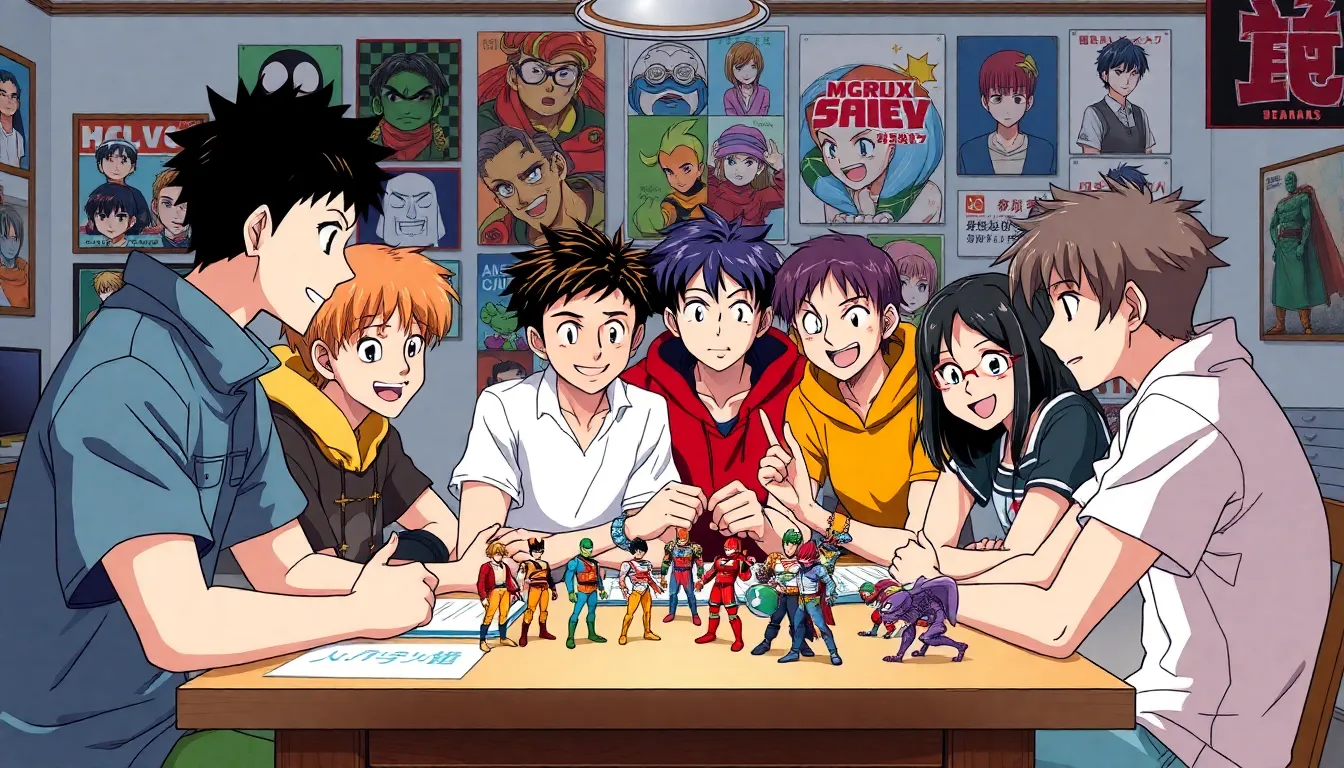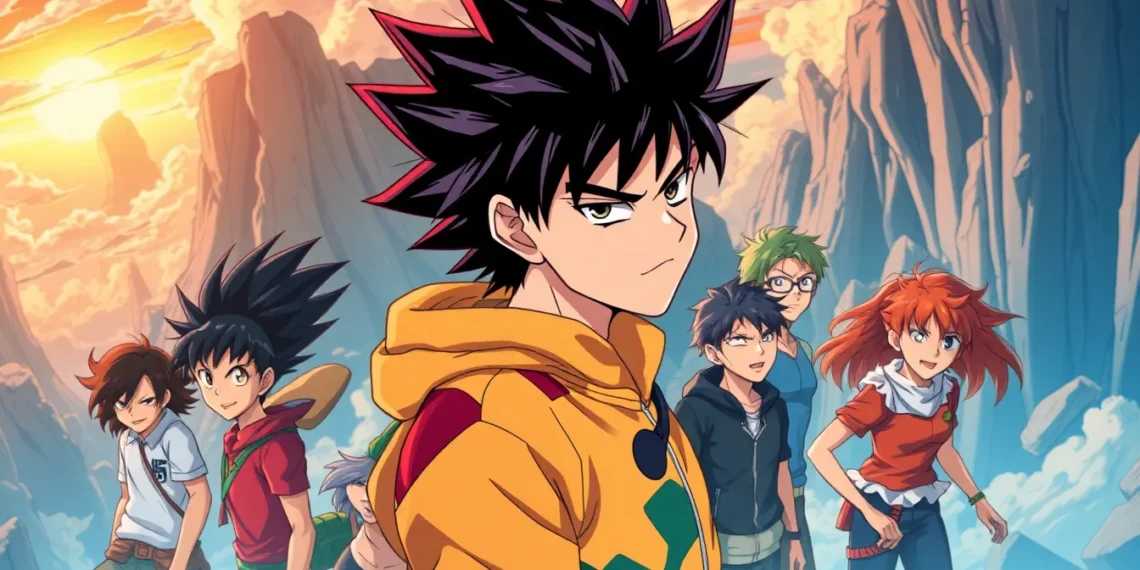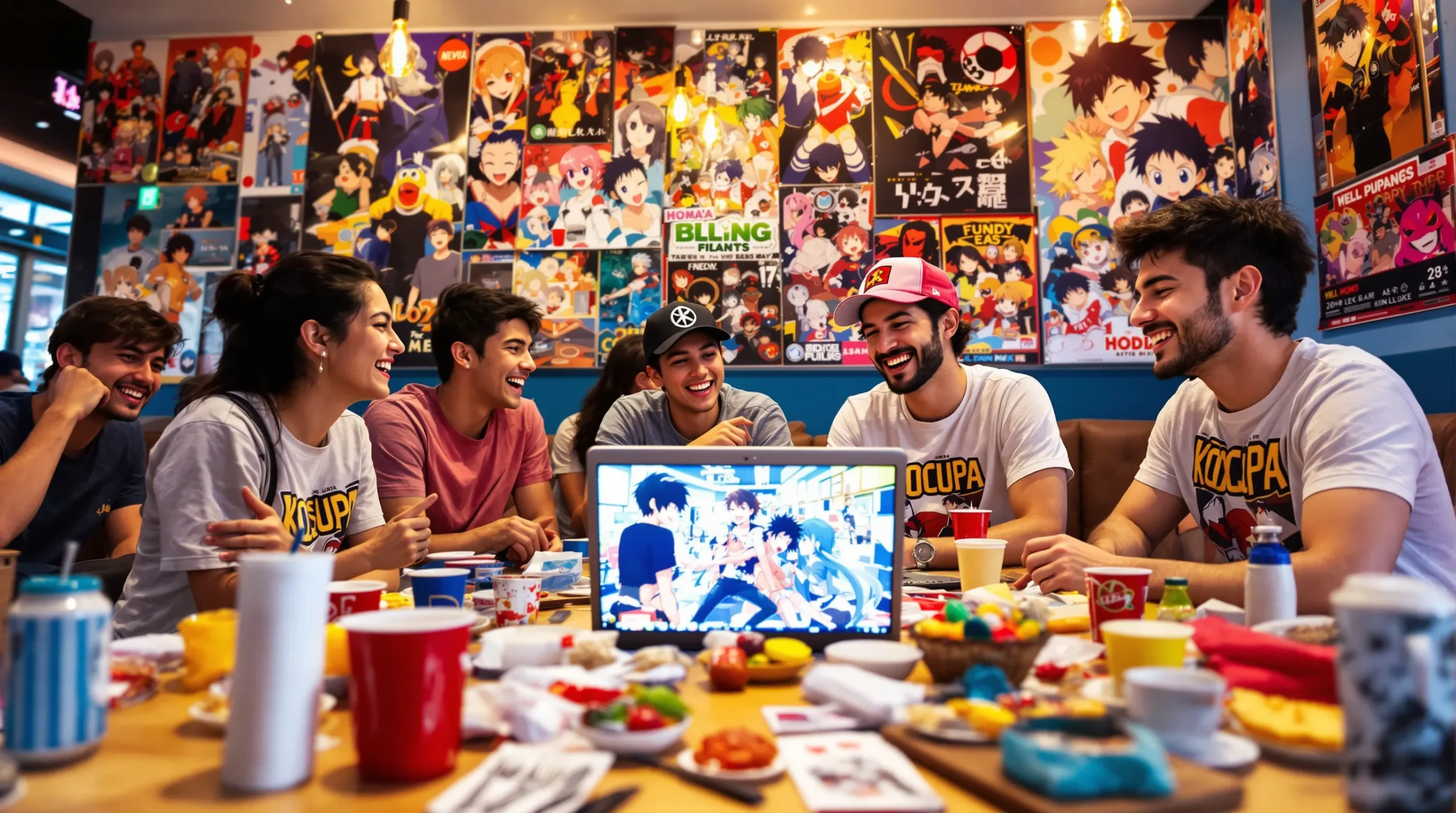Shonen anime isn’t just a genre; it’s a phenomenon that has captured hearts and minds worldwide. Imagine epic battles, friendships forged in the heat of conflict, and characters who never back down from a challenge. That’s the magic of shonen, where young boys—and some girls—find their heroes and villains in a world bursting with color and creativity.
What Is Shonen Anime
Shonen anime refers to a genre aimed primarily at young male audiences, typically between the ages of 12 and 18. This style emphasizes action, adventure, and themes like friendship, growth, and perseverance. Characters often face formidable challenges, inspiring viewers through their journeys.
Popular examples include series such as “Naruto,” “One Piece,” and “My Hero Academia.” Each series features protagonists who strive for their dreams, battling adversity while forming close bonds with friends. Through these narratives, shonen anime fosters resilience, courage, and the value of teamwork.
Several storytelling elements define shonen anime. Epic battles capture attention, while humor adds lightness to intense moments. Character development plays a significant role, allowing viewers to connect emotionally with the heroes and their struggles.
Many shonen anime series incorporate traditional values alongside modern themes, balancing respect for relationships with contemporary issues. Art styles varied across different shows, yet consistent animation quality engages audiences and enhances the viewing experience.
Overall, shonen anime stands as a vibrant part of global pop culture. It brings together diverse audiences and inspires countless creators. Connecting individuals through shared experiences, shonen anime continues to evolve, resonating with fans worldwide.
Characteristics of Shonen Anime

Shonen anime embodies distinct traits that resonate with its audience. Action-packed scenes, character growth, and friendship form core elements within narratives.
Themes Commonly Explored
Common themes in shonen anime include friendship, perseverance, and self-discovery. Epic battles emphasize the importance of overcoming obstacles and rivalries, showcasing growth and determination. These series often highlight the value of teamwork, enabling characters to face formidable foes together. Humor also plays a significant role, balancing intense moments and making narratives relatable. Concepts of loyalty and sacrifice further enrich storylines, fostering emotional connections between characters and viewers.
Target Audience
Shonen anime primarily targets young male viewers aged 12 to 18. Anime studios design content to appeal to this demographic, using relatable characters and thrilling plots. Young boys often see themselves in the protagonists, who face challenges and aspire to greatness. Although the primary audience is males, shonen anime attracts a diverse viewership, including young girls and adults. Engaging story arcs and vibrant worlds appeal to various age groups, driving its popularity. As a result, shonen anime maintains relevance across generations, fostering a broad fanbase.
Popular Shonen Anime Series
Shonen anime series captivate viewers with their dynamic storytelling and compelling characters. Various titles have shaped the genre and left a lasting impact on audiences worldwide.
Notable Titles and Their Impact
“Naruto” follows Naruto Uzumaki as he seeks recognition and dreams of becoming Hokage. This series introduced themes of perseverance and friendship, influencing countless fans. “One Piece,” featuring Monkey D. Luffy, focuses on adventure and camaraderie among pirates. It inspires aspirations for freedom and adventure, making it a beloved favorite. “My Hero Academia” highlights the growth of Izuku Midoriya, who aspires to be a hero despite starting with no powers. This series emphasizes self-discovery and determination, attracting a diverse audience.
Cultural Significance
Shonen anime holds substantial cultural significance across the globe. It reflects universal themes of friendship, bravery, and personal growth that resonate with viewers of all ages. Various series promote positive values, encouraging resilience in challenging circumstances. Iconic characters like Goku from “Dragon Ball Z” and Luffy serve as role models, inspiring generations. Additionally, shonen anime influences various media, including video games, merchandise, and fan art, integrating itself into modern pop culture. The genre’s ability to adapt and innovate allows it to maintain relevance across changing societal landscapes.
Evolution of Shonen Anime
Shonen anime has evolved significantly since its emergence in the early 20th century. Early influences stemmed from manga like “Astro Boy,” which established foundational elements of the genre. As the years progressed, series began to incorporate more complex narratives and character development.
The 1980s marked a significant turning point. Notable titles such as “Dragon Ball” introduced global audiences to intense battle sequences and iconic heroes. Repeatedly, these shows showcased themes of perseverance and friendship, establishing the core values that resonate with viewers today.
In the 1990s, shonen anime experienced a boom in popularity with series like “Yu Yu Hakusho” and “Sailor Moon.” These stories emphasized teamwork and personal growth, enthralling audiences of all ages. The appeal of relatable characters and dynamic plotlines helped shonen become a staple in various cultures.
Moving into the 2000s, advancements in animation technology enabled richer storytelling. Series like “Naruto” and “Bleach” featured expansive worlds and intricate character arcs, capturing the attention of a broader demographic. With each episode, characters faced formidable challenges that fostered emotional connections with viewers.
Recently, trends have shifted towards inclusivity and diversity in shonen anime. Titles like “My Hero Academia” break traditional molds by featuring diverse characters with unique backgrounds and abilities. These modern narratives reflect contemporary values and resonate with an increasingly global audience.
Thus, shonen anime continues to thrive in the modern landscape. By adapting to cultural shifts and embracing inclusivity, the genre maintains its relevance while captivating new generations. Viewers now experience an ever-expanding universe filled with relatable heroes and complex tales of triumph.
Conclusion
Shonen anime stands as a powerful cultural force that transcends age and geography. Its emphasis on friendship, perseverance, and self-discovery resonates deeply with viewers, inspiring them to chase their dreams and face challenges head-on. The genre’s rich storytelling and dynamic characters create an emotional connection that keeps audiences engaged.
As it continues to evolve, shonen anime remains relevant by embracing diversity and reflecting modern values. This adaptability ensures that it captivates new generations while maintaining its core themes. With its vibrant worlds and unforgettable heroes, shonen anime will undoubtedly continue to inspire and entertain fans around the globe for years to come.






